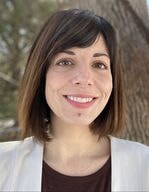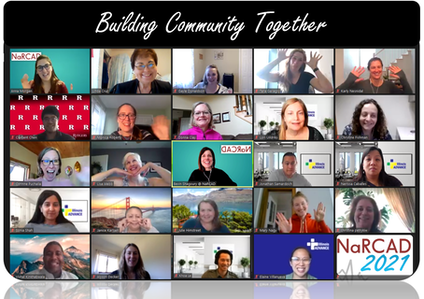 Bevin Shagoury NaRCAD Deputy Director Tags: Conference, COVID 19, Detailing Visits Unless you’re delightfully old school, I’m going to guess that you’re not holding the page you’re reading in your hands. That’s been a tough adjustment for those of us who prefer a paperback to a Kindle, or for those of us who miss unfolding an inky newspaper in the morning. In either case, this trend toward the intangible has been in motion for a long time, even pre-pandemic (if you can still imagine a world without COVID). We’ve been forced to step up the transition from tangible to virtual, seemingly at warp speed. And yet, as always, we’ve found ways to adapt. In a field like ours, where our work relies so heavily on the intricacies of human interaction, the inability to see nonverbal cues (at least, none below a clinician’s shoulders) during an e-detailing session could have easily thrown us off. If AD was the focus of a Netflix series, we could have entire episodes that depict the harsh reality of being “ghosted” after setting up a virtual visit, or trying to engage with a clinician who’s typing in chart notes while eating a sandwich.  Yet, even with these challenges—even with clinicians being pressed for time more than ever, and with COVID pulling attention away from other public health crises—you showed up to connect with what you had to offer. When you showed up, sometimes it was on a screen, sometimes it was with a mask that made it nearly impossible to show your own facial expressions, and sometimes you realized you just couldn’t make things happen that day. Maybe you were involved in COVID response work, filling a temporary gap elsewhere in your organization, or maybe you needed to step back to take care of yourself or the people you love. NaRCAD’s pride in this community isn’t a clickbait story about tenacity or adaptability in times of challenge, or about meeting setbacks with innovation and optimism. It’s about the reality that, in our field, demonstrations of empathy matter just as much as good evidence. And it’s not just about the importance of expressing that empathy to the clinicians who are taxed, or to our colleagues who are exhausted. It’s about recognizing that the important work we do as health educators requires us to offer that empathy to ourselves.  As we spend time celebrating the innovations and adaptations we’ve made to our AD interventions this year, I urge you to revel in the relational successes that deserve equal time in the spotlight. Continue to be as present as you’re able, with clinicians and with your detailing peers alike, even if it just means saying, “That sounds really difficult,” or “I understand.” Your validation and support of one another illustrates that acknowledging our shared humanity is just as valuable as bringing clinicians the tools they need to tackle what comes next. So, what comes next? A chance for a collective exhale is a terrific start, along with connecting with each other and continuing to strengthen our incredible community. Our conference is a chance to witness and learn from all that we’ve created together this year, and to allow ourselves a pause to take it all in and recharge. Couldn't join our event? Visit the Conference Hub for highlights. Have thoughts on our DETAILS Blog posts? You can head on over to our Discussion Forum to continue the conversation! Biography.
Bevin Shagoury, Deputy Director, NaRCAD Bevin manages NaRCAD’s strategic partnerships, building collaborations with public health leaders at the national and federal level. With career experience in building learning communities to increase engagement and sustainability, Bevin has expertise in creating interactive, interdisciplinary training curricula at healthcare-based non-profits. In collaboration with the dynamic NaRCAD team, Bevin facilitates NaRCAD's virtual and in-person learning sessions to encourage hands-on skill development and best practices sharing amongst peer programs. Read more. Comments are closed.
|
Highlighting Best PracticesWe highlight what's working in clinical education through interviews, features, event recaps, and guest blogs, offering clinical educators the chance to share successes and lessons learned from around the country & beyond. Search Archives
|
